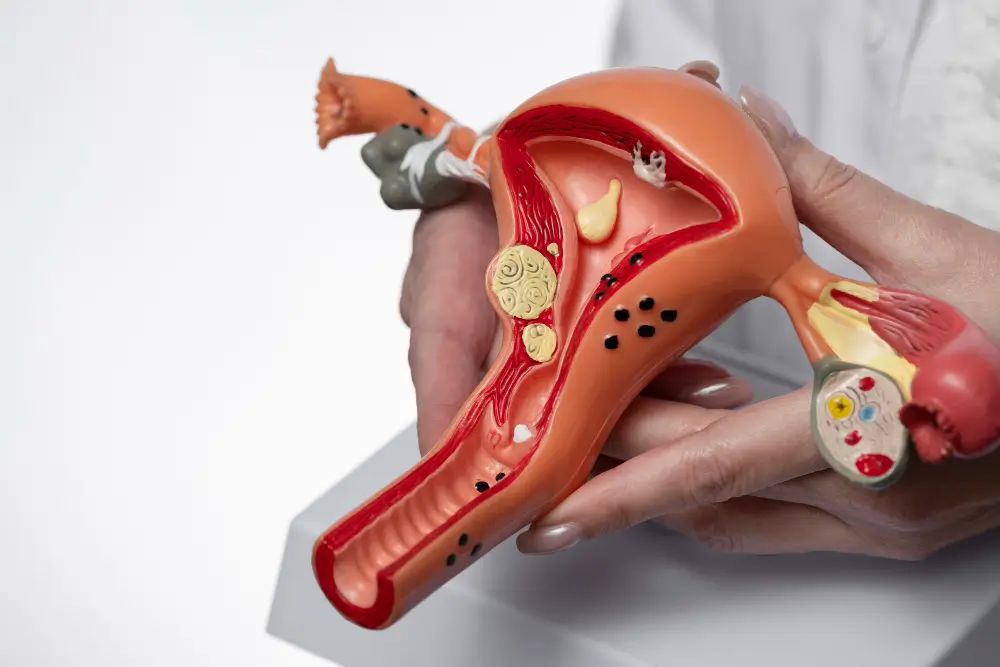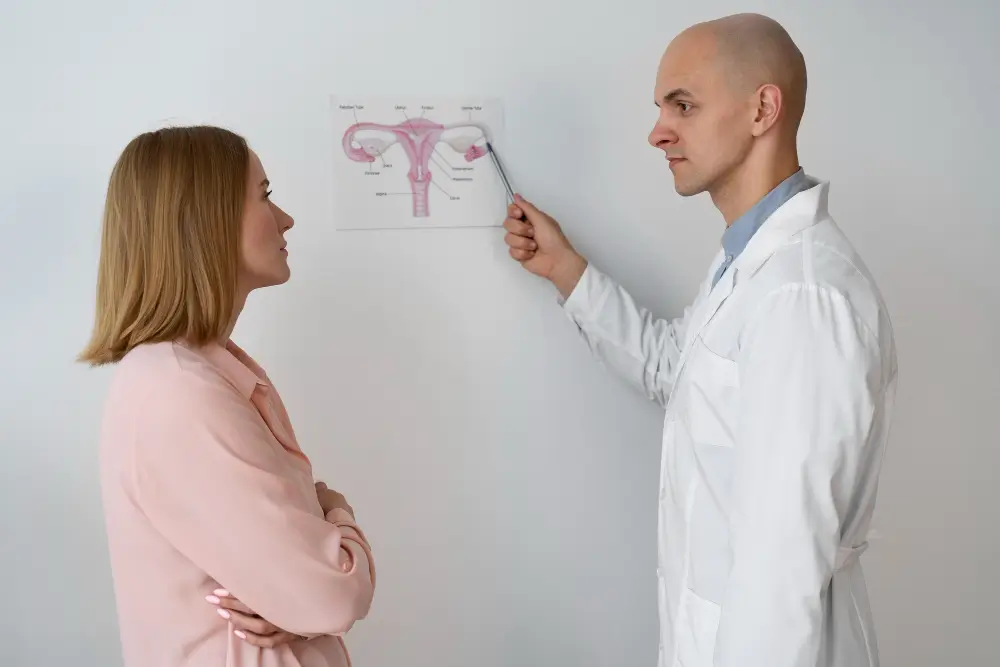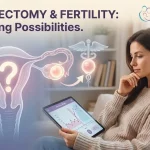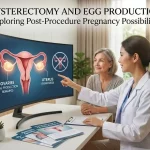
Undergoing a hysterectomy is a major medical decision—one that not only impacts the uterus but may also influence fertility, hormonal balance, and future family-building options. Many women ask, What happens to eggs after a Hysterectomy, especially when considering their long-term reproductive health.
Whether you plan to preserve fertility or simply want clarity about your body, this article explores eight lesser-known facts and how fertility specialists such as Surrogacy4All can help navigate choices involving IVF and surrogacy.
Understanding Hysterectomy and Its Impact on Fertility
1. Your Ovaries May Still Release Eggs
If your ovaries remain after surgery, they can continue to function normally—producing hormones and releasing eggs each month. However, since the uterus is removed, fertilization cannot lead to pregnancy. The released egg usually dissolves in the abdominal cavity without harm. Understanding what happens to eggs after a Hysterectomy helps set realistic expectations about your fertility and hormonal future.
2. Natural Pregnancy Becomes Impossible
After a full hysterectomy, natural conception cannot occur because the uterus, where an embryo implants, is absent. Yet, your eggs may still be used through IVF and Surrogacy. With advanced reproductive options, intended parents can use retrieved eggs to create embryos and transfer them to a gestational carrier. As the best surrogacy agency, Surrogacy4All assists women and couples who wish to preserve their genetic connection to a child through assisted reproductive methods.
3. The Released Egg Is Reabsorbed by the Body
There’s no risk of “loose eggs” floating around. Once released, the egg is naturally reabsorbed by the body without side effects. This is a normal biological process. However, for women who still wish to have children, IVF and Surrogacy provide a reliable way to use their eggs in creating embryos that can grow in a surrogate’s womb. Working with a trusted surrogate mother agency ensures this process is managed safely and ethically.
4. Ovarian Function May Decline More Quickly
Even if your ovaries are preserved, studies show ovarian function can decline earlier after surgery. This means hormonal changes and menopause symptoms may occur sooner than expected. Fertility experts often suggest monitoring hormone levels closely, especially for those planning pregnancy through IVF and Surrogacy later. Surrogacy4All, as the best surrogacy agency, helps individuals make informed choices regarding egg retrieval and storage before surgery.
5. Fertility Preservation Is Still Possible
If you’re preparing for surgery and hope to maintain future fertility, egg or embryo freezing is possible before the procedure. Fertility preservation allows your eggs to be used later through assisted reproduction or with a surrogate mother agency. Many women in their 30s or 40s explore these options, particularly if they face conditions requiring a hysterectomy. Specialists at Surrogacy4All emphasize that early consultation can make a significant difference in preserving viable eggs for future use.
6. Egg Donation Might Still Be an Option
If your ovaries remain functional, you may still qualify as an egg donor even after a hysterectomy. The process depends on your ovarian reserve and overall health. Some women choose to donate eggs to others, while others preserve them for their own IVF and Surrogacy journeys. With professional support from the best surrogacy agency, egg donation and fertility management can be safely planned for long-term family-building goals.
7. Hormone Production May Continue—With Variations
Ovaries that remain after a hysterectomy still produce estrogen and progesterone, meaning menopause won’t begin immediately. However, hormonal fluctuations may occur sooner or feel different from before. Understanding the role of hormones also helps predict how your body adjusts over time.
For some, monitoring health becomes particularly important during sensitive stages like pregnancy planning or assessing 24 week fetus viability in surrogacy contexts. Experts at Surrogacy4All guide clients with holistic support during such transitions.
8. Your Fertility Pathway Requires Planning and Expert Guidance
While natural conception isn’t possible, modern medicine offers numerous options. Using your own eggs through IVF and Surrogacy, or donor eggs if needed, makes parenthood achievable. Surrogacy programs follow structured medical and legal steps—collectively known as the surrogacy process—that include medical screening, matching with a gestational carrier, and legal agreements to protect all parties involved.
Choosing an experienced surrogate mother agency ensures the surrogacy process runs smoothly, ethically, and with emotional care.
Moreover, fertility specialists stress the importance of medical milestones, such as 24 week fetus viability, when monitoring gestational surrogacy pregnancies. These key points help ensure both the mother’s and the baby’s health throughout the journey.
Final Words
A hysterectomy doesn’t mean your reproductive journey is over—it simply takes a new path. Whether your ovaries remain or not, the status of your eggs determines the possibilities ahead. Through fertility preservation, IVF and Surrogacy, and the support of professionals at Surrogacy4All, women can still achieve their dream of parenthood.
By collaborating with the best surrogacy agency, you gain expert medical, emotional, and legal support every step of the way. If you ever wonder about what happens to eggs after a Hysterectomy, remember this: your body’s potential doesn’t end with surgery—it simply transforms, opening doors to new beginnings through compassion, science, and hope.
Frequently Asked Questions:-
Q. Do my ovaries still release eggs after a hysterectomy?
Ans: Yes, if your ovaries are not removed, they continue to release eggs. However, what happens to eggs after a hysterectomy is that they can’t travel for implantation and are naturally reabsorbed by the body without causing any harm.
Q. Can I still get pregnant after a hysterectomy?
Ans: No, pregnancy isn’t possible after a full hysterectomy since the uterus is removed. But if your ovaries remain intact, you can still use your eggs through IVF and surrogacy, with the support of trusted programs like Surrogacy4All, one of the best surrogacy agency options for intended parents.
Q. Can I freeze my eggs before a hysterectomy?
Ans: Absolutely. Many women choose egg freezing before undergoing surgery to preserve fertility for the future. The surrogacy process often begins with frozen or retrieved eggs, and the fertility specialists at Surrogacy4All can guide you through each step safely and efficiently.
Q. What happens to the eggs released after surgery?
Ans: When your ovaries release an egg after a hysterectomy, it has nowhere to go and is simply absorbed by your body. This natural process doesn’t affect your overall health or hormone levels, regardless of 24 week fetus viability or reproductive potential.
Q. Does a hysterectomy affect hormone production?
Ans: If your ovaries remain, they’ll still produce essential hormones like estrogen and progesterone. However, if both ovaries are removed, hormone production stops, leading to menopause symptoms. In such cases, support from a reputable surrogate mother agency or fertility consultant may help you explore future family-building options.

Dr. Veera Saghar
As an Egg Donor Coordinator, she plays a critical role in our company. Her background as a medical graduate from ISRA UNIVERSITY in Pakistan provides us with a solid foundation in the medical sciences. She has seven years of clinical experience practicing in the USA. This has given her firsthand experience when collaborating with patients and their families.
She is responsible for managing the process of egg donation from start to finish. We identify and screen potential egg donors.






